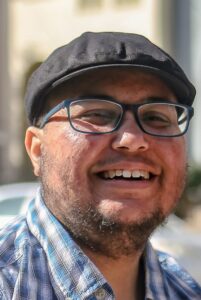By Jack Pemment
There are two things that can severely determine a person’s social fate: A criminal verdict and a mental health diagnosis.
Regardless of the true events behind the criminal verdict, the return of guilty by a judge will sway most public opinion in a direction where the recent defendant is destined for a life as a pariah. Employment and meaningful relationships, even after serving the sentence, will be difficult to find and maintain.
A mental health diagnosis can result in a similar outcome.
There is a bitter irony that a diagnosis, which is meant to help and guide treatment or therapy, could in the long term lead to the isolation and desolation of the person. At the time of diagnosis, the person is seen to be in need of care, after all, they are now the patient. But even many years later after interventional therapy and good therapeutic habits, the person is still seen to be in need of care and liable to others – a liability.
In addition, a diagnosis implies a departure from normal or healthy. The diagnosis, which will be a permanent feature of a person’s medical record, will always cast doubt over whether the person is normal or healthy in the present. Mental health diagnoses are particularly ominous because doubt over whether the brain is normal or healthy will impact the possibility for meaningful relationships.
Many people with a diagnosed mental disorder or illness, such as Autism, ADHD, Bipolar Disorder, Tourette’s Syndrome, etc. face these stigmas and have to fight hard to be treated as autonomous individuals. Part of the reason that the neurodivergent movement has been so successful is because neurodivergent is not a diagnosis but a voluntary moniker that stresses difference is not disorder.
Autism diagnostic criteria are quite frankly weird. Riddled with terms like unusual, hyper-, hypo-, deficits, rituals, difficulties, disturbances, etc. What is normal seems to have been arbitrarily agreed and so any departures are seen as abnormal. The Autist might reverse these didacts and suggest that the allist has the disorder.
Standard of living and ability to function and survive are also determined by the environment. If there are easily constructed environments where an autist can thrive, permanently, they simply might be a different kind of normal. This demonstrates that those who control the environment control the definition of normal.
Diagnostic criteria that are composed of behavioral traits are also problematic. They typically work whereby if someone demonstrates enough of something, then they score high enough to meet the diagnosis. In addition to poor definitions of normal, many allists will also have autistic traits, such as a limited tolerance for sustained eye contact, the need for routine and sameness, or a personal interest that borders on obsessive (in allistic parlance these might be known as hobbies, vocations, or pastimes).
The existence of allists with Autistic traits is suggestive of at least a couple of things. First, civil and social accommodations for those with Autism are also accommodations for many allists (thus helping them fulfill their potential). Second, Autistic traits may very well be an acknowledgement of human diversity and difference, where taken together Autistic and allistic traits are everything of what it means to be human.
Many people with Autistic traits have to find ways to cope and mask in social settings. However, this is not unique to those with Autism as every worker has to find ways to cope with long hours and elevated levels of work in challenging environments. Often, workplaces are considered normal places to work and an employee’s success has more to do with their character than their inherent traits. If workers had more control over how they work they would be happier and more productive.
Accommodating for those that identify as neurodivergent would not just be helping with the inclusion of a marginalized group. It would be creating an environment where everyone can flourish. A recognized need for less meetings and periods of sensory deprivation would benefit everyone, as work completed in solitude is also important.
Learning to live with a guilty verdict will revolve around how a person can reflect and grow from some previous bad behavior. Learning to live with Autism should not involve trying to convince the world that you’re human, too.
Jack Pemment came into neuroscience after studying theories of culture, particularly memes and memetics. This started his love affair with how “brain food” can have an impact on human behavior, and after graduating, he moved with his wife to Oxford, MS, to study neurobiological explanations of reactive and instrumental aggression at the University of Mississippi. You can read more of his writing on his blog named Blame the Amygdala.







